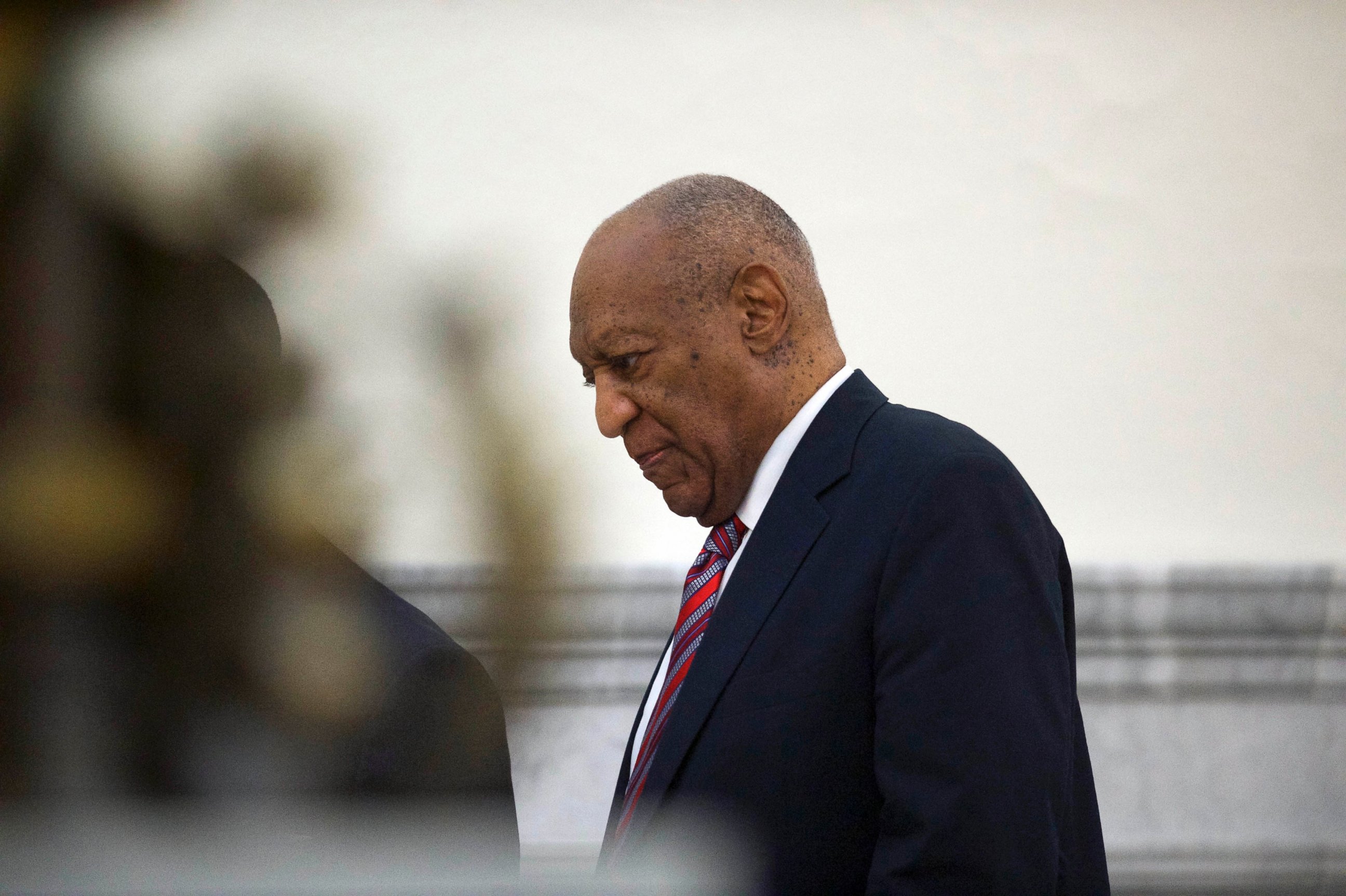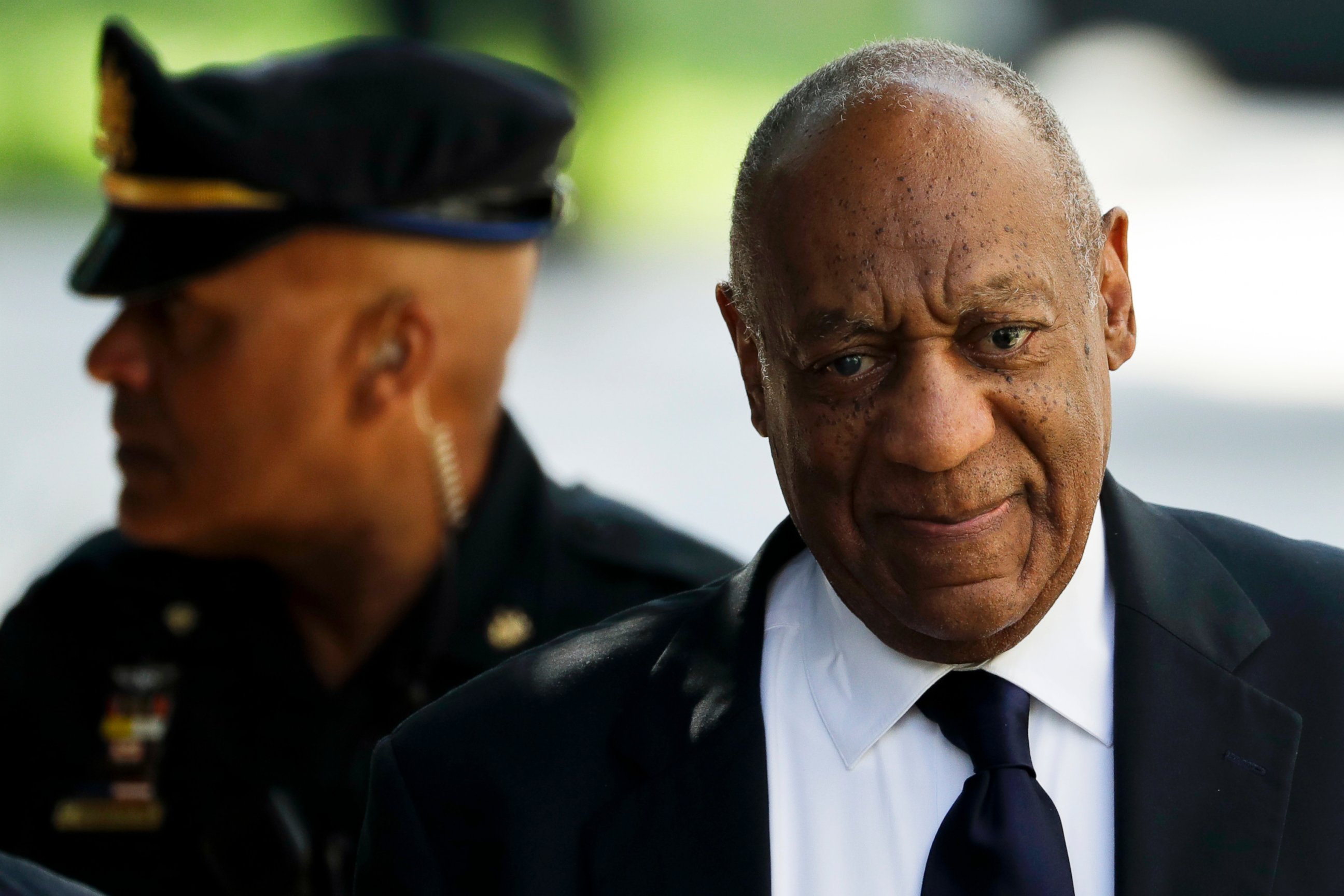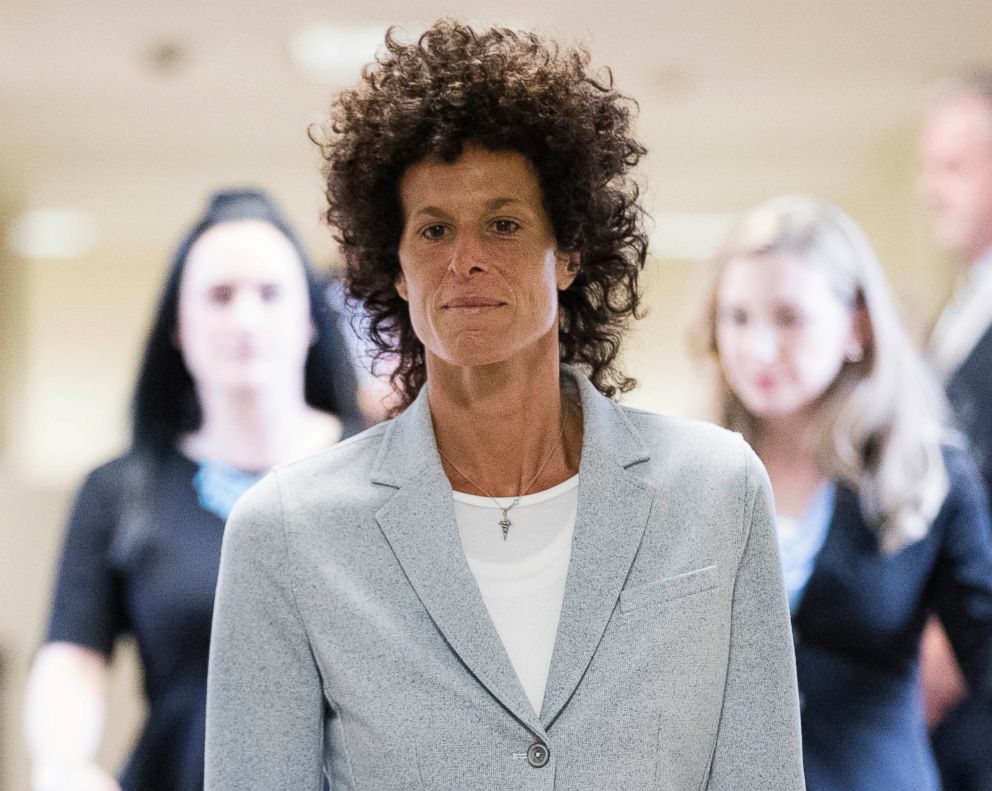Appeals court judges hammer Bill Cosby’s defense team with challenges during oral arguments
The court will issue a written ruling on the appeal at a future date.
Did Bill Cosby -- the only brand name celebrity to be convicted of sexual assault since the dawn of the nationwide #MeToo movement in 2017 -- get a fair trial?
The comedian says no, and on Monday his fourth team of attorneys got what could be Cosby’s final shot at convincing a Pennsylvania court to free him from state prison.
Yet a seemingly-skeptical panel of state Superior Court judges peppered his attorneys repeatedly with challenges to the defense team's arguments, while barely interrupting two state prosecutors during their presentation, over roughly an hour of oral arguments at an appellate court hearing in Harrisburg, Pennsylvania.
While Pennsylvania Superior Court rulings can be appealed to the state’s Supreme Court, that court can choose whether or not to hear the case.
The Superior Court panel’s ruling on Cosby’s appeal will be issued in writing at an unspecified future date.
At the heart of Cosby’s voluminous appeal is the contention that the trial judge’s decision to allow five women to testify to additional, uncharged crimes was unfairly prejudicial to his defense.
In April, 2018, Cosby -- who was not in court for Monday’s oral arguments -- was convicted of three counts of indecent assault and battery for drugging and sexually assaulting former Temple University basketball coach Andrea Constand in 2004. He was sentenced in September of that year to three to 10 years in prison.

State law prohibits the introduction of uncharged criminal accusations into court trials, but there’s an exception if the prosecution can convince a judge that there’s an underlying pattern of "prior bad acts," and in Cosby's case, there were multiple sexual assault allegations against him.
Since being used twice against Cosby by prosecutors in Montgomery County, the strategy of petitioning a court to introduce additional witnesses with similar sexual assault allegations has cropped up in other high-profile cases. In New York, a state Supreme Court judge is currently deciding whether or not to allow additional accusers to testify to uncharged crimes in a sexual assault case against Hollywood producer Harvey Weinstein.
The strategy is testing a still-evolving area of law in a new era of heightened scrutiny of suspected serial sex predators and a nationwide re-evaluation of state statute of limitations laws governing sex crimes prosecutions.
During Cosby’s first trial in 2017 -- which led to a hung jury and mistrial -- the prosecutors sought 13 "prior bad acts" witnesses and were allowed to present one.
In the second trial, the same Pennsylvania trial judge, Steven P. O’Neill, allowed five of 19 women sought by prosecutors to take the stand. Their testimony in sum was devastating, though jurors from the second trial issued a statement crediting Constand’s testimony on the witness stand as the primary factor in their unanimous guilty verdict.
"Simply put, we were asked to assess the credibility of Ms. Constand's account of what happened to her, and each one of us found her account credible and compelling," the jurors said in a statement at the time.
‘Prior bad acts’ witnesses
The thorny issue of allowing additional accusers – whether it’s warranted given a clear pattern of behavior or whether it’s overly-prejudicial to the defendant – was the subject of debate among legal experts and scholars who spoke with ABC News last year prior to Cosby’s second trial.
In its appeal, Cosby’s defense team calls the decision to allow five women to testify – and a sixth, through transcript excerpts – "clearly erroneous and an abuse of discretion."
"This evidence was used to strip Cosby of his presumption of innocence and to try to establish that Cosby had the propensity to sexually assault women. This evidence never should have been admitted at trial," defense attorneys wrote in the appeal.
As Cosby defense attorney Kristen Weisenberger sought to describe in Monday’s oral arguments what she said was the "arbitrary" nature of the judge’s decision to allow different numbers of "prior bad acts" witnesses in the first and second trials, Superior Court Judge John Bender interrupted her, saying "well, it’s not arbitrary," before suggesting she move on.
"Don’t you think instead of talking numbers, shouldn’t we talk about, was there a pattern established by the testimony of the prior bad acts witnesses in the second trial?" Bender wondered aloud.
When Weisenberger — standing beneath a Tiffany stained-glass skylight dome in the ornate courtroom — went on to argue that the jury instructions regarding these witnesses unfairly made Cosby sound "guilty" of those acts, Bender again interrupted to insist that Weisenberger clarify her argument.

"These are prior bad acts witnesses, not prior convictions," he said.
When she argued that the five additional witnesses’ accounts were not sufficiently similar and began to detail their differences, Bender again cut her off.
He gives them drugs and then he has sex with them. That's the pattern, is it not?
"He gives them drugs and then he has sex with them," Bender stated. "That's the pattern, is it not?"
A second judge, Carolyn Nichols, then interjected that in four of the five of those women's accounts "it was a mentor situation" in which Cosby is alleged to have first presented himself to them as a potential mentor or supporter of their various careers, which included acting and modeling.
When Weisenberger noted that the ages varied among these five women at the time of their alleged sexual assaults by Cosby, the third judge on the panel, Susan Peikes Gantman, interrupted her again to return to the notion of a signature criminal pattern, which Peikes Gantman described as beginning with "a mentorship" followed by "an invitation and intoxication."
Bender then again suggested that the defense attorney move on.
"I don’t mean to cut you off, but I’m excited to hear the next issue," he said.
The prosecution and defense were both given 15-minute limits on their oral arguments -- including questions from the judges -- but ultimately each side spoke before the court for about a half hour.
Cosby’s lawyers also challenged a December 2016 decision -- reaffirmed ahead of the second trial -- denying Cosby’s bid to suppress his deposition testimony from a civil lawsuit as part of a lawsuit brought against him by Constand.
In November 2006, Constand reached a civil settlement with Cosby for $3.38 million, according to court records, which states that she "agrees that she will not initiate any criminal complaint against Cosby arising from the underlying facts of this case." She was ultimately subpoenaed by current Montgomery County District Attorney Kevin Steele to testify in the criminal case against Cosby.
Cosby’s attorneys argue in his appeal that the only reason he waived his Fifth Amendment right against self-incrimination, and participated in the civil deposition by lawyers for Andrea Constand, was that then-Montgomery County District Attorney Bruce Castor had ended a criminal investigation into the incident with a 2005 press release saying he did not intend to criminally prosecute the actor and comedian on the basis of Constand’s allegations.
That deposition introduced into trial an admission by Cosby — who declined to take the stand in his own defense at either of his trials — that during the 1970s he acquired Quaaludes, a narcotic, in order to give to women prior to consensual sexual encounters, and that he had given them to one woman. He claimed in the deposition that several blue pills he gave Constand to relax were the allergy medicine Benadryl. Prosecutors have said they suspect, but have never been able to prove, that Cosby in fact gave her something much stronger.

Prosecutors challenged this claim in their appellate response as well, saying that "these statements, coming from the defendant’s own mouth, demonstrate that he had access to knowledge of, and a motive and intent to knowingly use a central nervous system depressant, a substance he knew could render a female unconscious, for the purpose of engaging in sex acts."
The comedian has emphatically denied ever having involuntary sexual contact with, or forcibly drugging anyone.
Members of the three-judge state Superior Court panel on Monday repeatedly questioned Cosby’s contention that he believed Castor’s promise was binding.
"How can an elected official bind an office in perpetuity with just a press release?" Superior Court Judge Carolyn Nichols wondered. "It is not reasonable to anyone to think an elected district attorney could bind the office beyond the term of the DA. How is it reasonable to think that?"
She went on to point out that according to the prosecutors’ appellate response, Castor said he did not agree to never prosecute Cosby, and said instead that anything Cosby said would not be used to advance a new criminal prosecution based on Constand's allegations.
When defense attorneys sought to argue that Judge O’Neill should have recused himself because of alleged "animus" between him and Castor arising from a 1999 incident, the judges wondered aloud why neither man had similarly sought to recuse himself over the incident during subsequent years during which Castor tried cases before O'Neill and other judges as Montgomery County prosecutor.
‘It was because of the drugs that she doesn’t remember’
Meanwhile, the few times the judges interrupted the Montgomery County prosecutors who spoke at length before the court, they only did so to seek clarification, or even interjected to expand upon the prosecutors’ arguments at certain points.
Prosecutor Adrienne Jappe, who works in the district attorney's appellate unit, called any dissimilarities between the accounts of the five women who testified at the second trial "inconsequential distinctions."
"The signature [crime demonstrated] is not the actual sexual assault," she said, describing an alleged pattern by Cosby of befriending and grooming the women to believe he could help them in their careers in order to gain their trust before isolating them, drugging them and sexually assaulting them. She said that one of the five woman who testified said she doesn’t recall what happened after she was drugged and lost consciousness.
Jappe argued that Cosby shouldn’t be "benefited or rewarded" because one of the woman couldn’t clearly recall what happened after she said she lost consciousness.
"It was because of the drugs that she doesn’t remember," Jappe said.
In a statement outside of the courtroom, Cosby spokesman Andrew Wyatt said that "Mr. Cosby is very hopeful that these judges will grant him a fair and impartial trial that he did not have."




